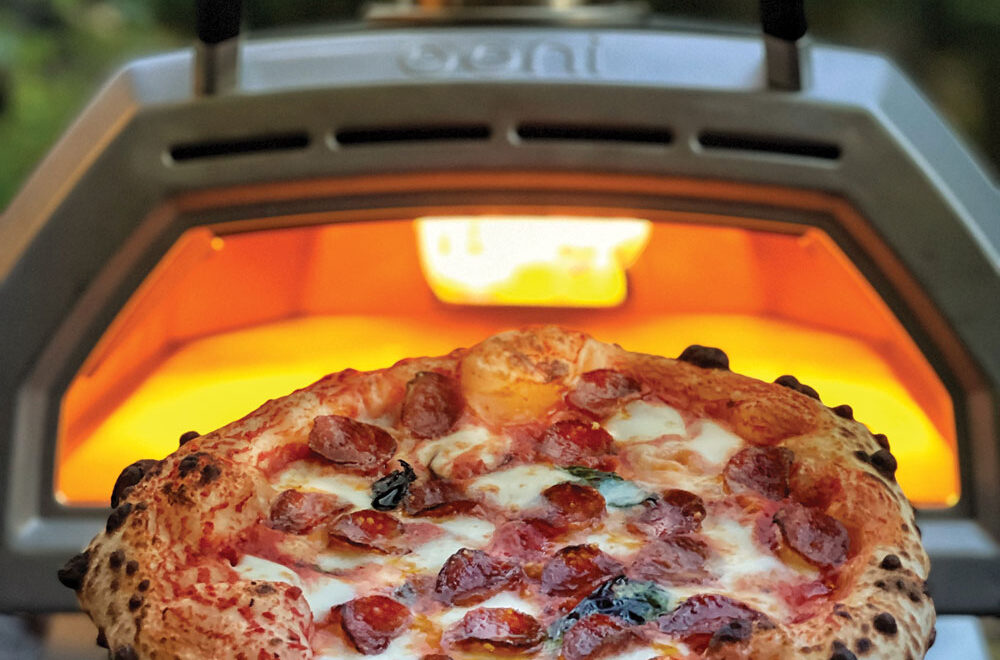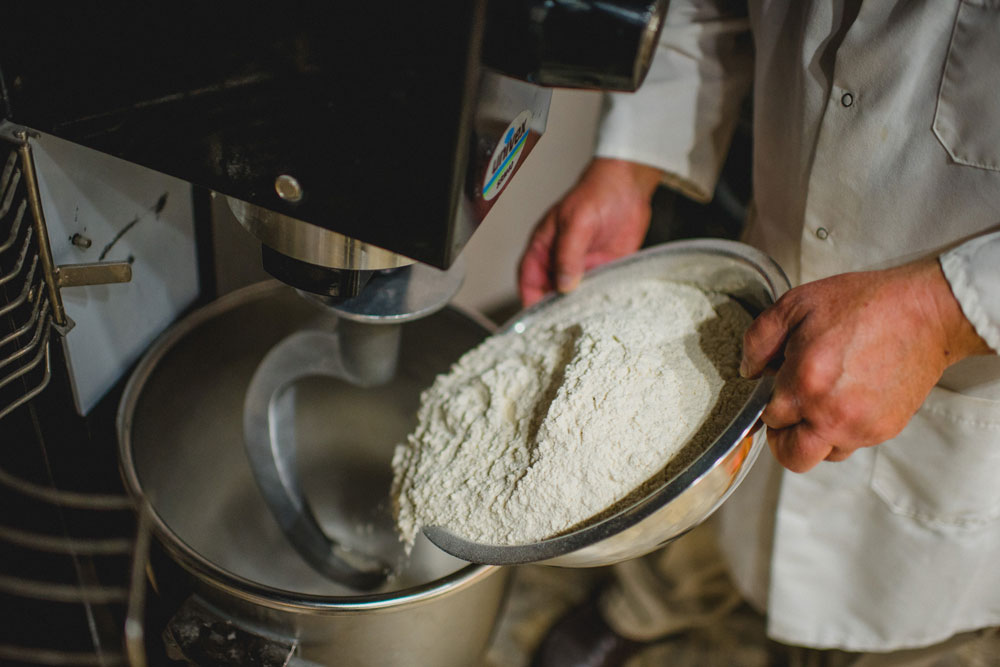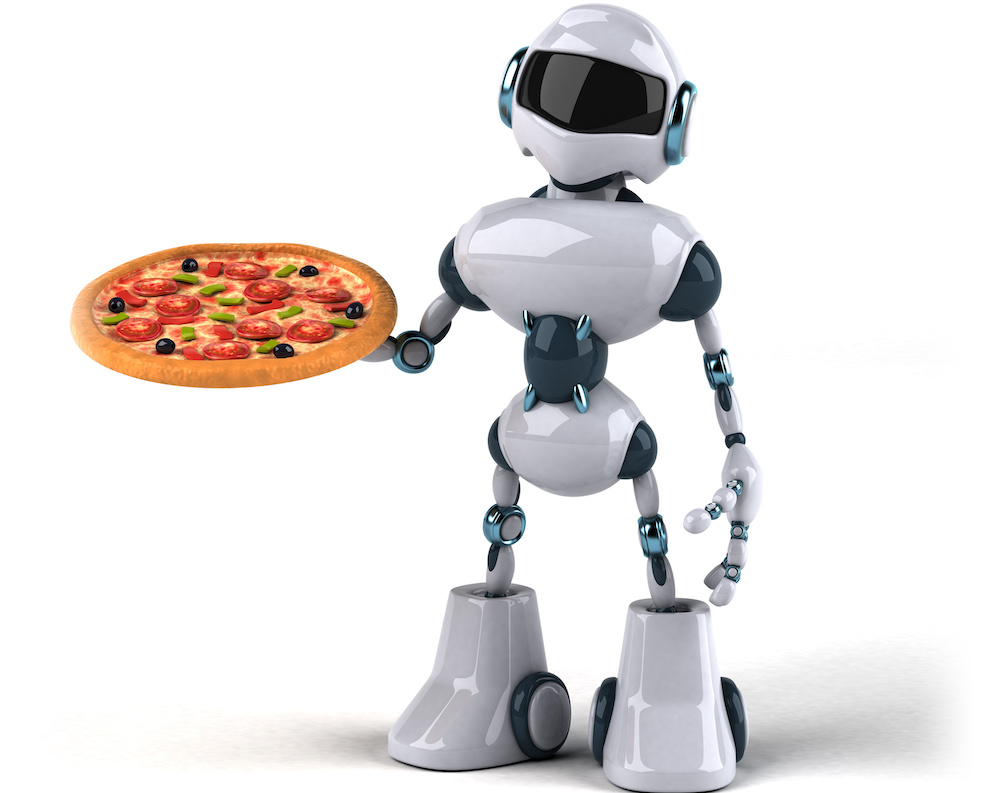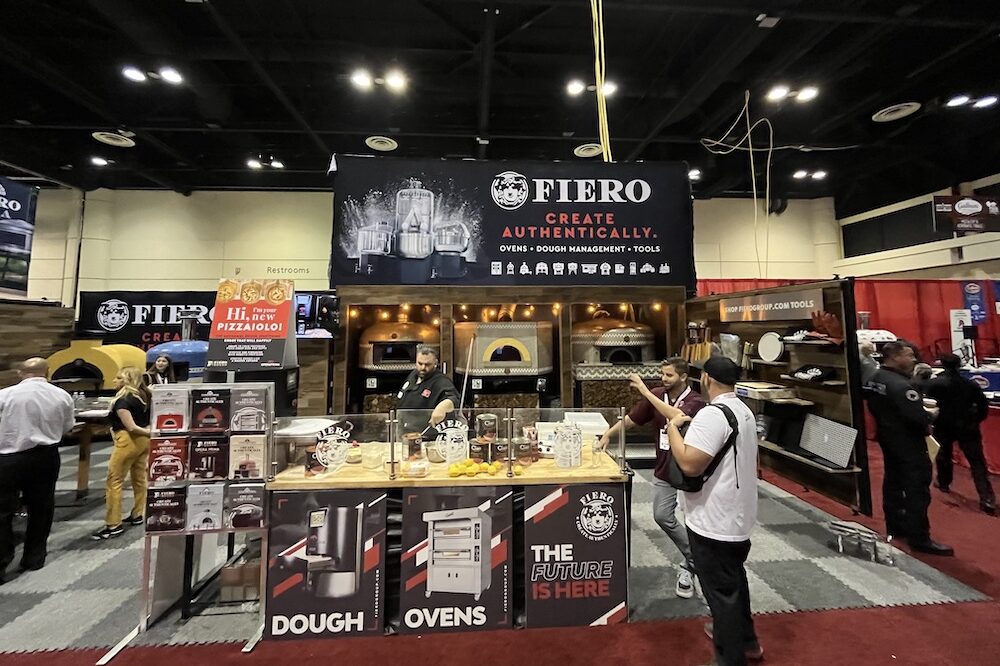By Tracy Morin
There are certain situations no restaurant owner wants to face, and a few of them certainly fall under the category of equipment failure. Without key units in your kitchen working—a mixer, refrigerator or oven, for example—a pizzeria can instantly go from up and running to closed for business (at least until the equipment gets fixed). Luckily, there are ways to keep your major equipment functioning smoothly over the long haul, through the proper preventative maintenance.
“What a lot of people don’t realize is that when a part breaks, that has a downstream effect on other parts and systems—in other words, it will in turn make those other parts or systems break sooner.”
— Joe Gallagher, 86 Repairs

Photo courtesy Proluxe-Brad Kent
The Domino Effect
When one thing goes wrong on a piece of major equipment, the entire system falls under duress, Joe Gallagher, co-founder and product management for 86 Repairs in Grand Rapids, Michigan, points out. “What a lot of people don’t realize is that when a part breaks, that has a downstream effect on other parts and systems—in other words, it will in turn make those other parts or systems break sooner,” he explains. “Just ask any operator about that time his conveyor on the oven broke and bound up, and then, maybe not immediately, but a few weeks or months later, he burnt out the conveyor motor itself. This motor failure is related to the extra work it had to do for that failing conveyor.”
The good news is, maintaining equipment proactively—before breaks occur—will minimize these trickle-down effects and ultimately help your units last longer. “A well-planned and well-executed preventative maintenance plan can yield up to 20% lower operating costs over the life of a long-term asset, like an oven,” Gallagher notes. “Avoiding the cost of downtime, in terms of lost revenue, is the biggest benefit of proper maintenance and operation. Many of these key appliances are very expensive, so operators often only buy enough to just meet their daily needs, but to be down an oven might mean missing Friday sales by 50% or more. And, beyond uptime, safety and energy savings are additional benefits of proper maintenance.”
For Brad Kent, owner of Bagel + Slice in the Highland Park neighborhood of Los Angeles and a co-founder of Blaze Pizza, avoiding downtime is the biggest perk of committing to ongoing maintenance in the kitchen. His Bagel + Slice concept is located in a 104-year-old building without air conditioning, which reaches more than 100°F daily in the summertime. So he takes pride in all of the original (now seven-year-old) refrigeration equipment still running and cooling properly. “The best way to ensure a long and efficient life for equipment is through proper maintenance,” Kent asserts. “I recommend repairing equipment as soon as it shows signs of needing repair, rather than waiting for it to break. I also encourage having spare parts on hand for equipment, in case repairs are needed, so that the repair person can fix it immediately, rather than waiting for parts and charging for a second trip out.”

Photo by 86 Repairs
Step by Step
Gallagher shares his three top tips for major-equipment maintenance:
- When it comes to ovens, committing to daily, weekly and monthly cleaning, with an increased depth of cleaning at the monthly level, is the best preventative measure an operator can take. Then, depending on the oven setup, ventilation inspection and cleaning are essential. One surprising item to check is specifically for spring-loaded doors—these springs often fail over time and cause the door to drop hard or not stay closed, causing safety and performance issues.
- For refrigeration, ensure the heat exchangers are cleaned on a monthly basis, and de-ice any buildup before it gets out of control. Beyond that, a quarterly inspection of door gaskets and door catches (to ensure proper door seals) keeps units working only as hard as they have to.
- For your dough mixers, make sure you keep the unit clean to reduce flour buildup and prevent binding or drag issues. Roughly twice a year, it’s important to lubricate the planetary seal where the dough hook attaches, and the slideway for units that move up and down.
Meanwhile, Kent takes the following approach to his kitchen maintenance:
- Maximize air flow around major appliances by ensuring there are no obstructions, allowing equipment to breathe freely.
- Refrigeration, air conditioners and ice machines need regular cleaning of condenser coils and replacement of damaged gaskets. Clean refrigerator gaskets daily with soap and water (don’t use chemicals, which can damage the seals), then brush, vacuum or blow out condenser coils with compressed air to free accumulated dust monthly. Use condenser coil cleaner when needed.
- Vacuum or brush out burner wells on gas ovens monthly. Sweep out wood burning ovens every morning before lighting the fire.
- Replace belts quarterly on hood fan motors to ensure hoods remain reliable. Replace hood fan bearings once per year.
Taking these steps saves money over the long haul. “Let’s say a major appliance will last seven years. Proper maintenance savings start showing up in year three, four and five, due to less frequent and less involved repairs,” Gallagher explains. “Then the big saving is when you don’t have to replace the appliance early, in year six or seven—or, worse, sooner.”
“I recommend repairing equipment as soon as it shows signs of needing repair, rather than waiting for it to break.”
— Brad Kent, Blaze Pizza and Bagel + Slice
Maintaining the Maintenance
Yes, even your maintenance procedures need maintaining. First of all, ensure that your staff members are trained to treat the equipment properly to avoid repairs earlier than necessary. “This isn’t typically mentioned, but you need proper training in the operation of major appliances,” Gallagher says. “Even if you’re maintaining a unit well, rough operation—like hip-checking refrigerator doors closed, or using your dough press on frozen or cold dough—are a major source of expensive repairs and will lead to an overall reduction of the unit’s lifespan.”
You’ll also want to keep a record of what procedures should be done, and when. Staff members can then check them off as they occur, so a quick glance tells you what your equipment needs at any given time. “Keep a written schedule and checklist in the kitchen,” advises chef Faisal Aldeleigan, founder of the Chef Faisal Consultancy in Saar, Bahrain. “It’s very important to work with your staff on this—because operating without a strong system for cleaning and maintaining your kitchen equipment will cause a lot of expense and damages.”
You can even utilize technology to help keep up with maintenance. Some manufacturers now offer apps to monitor kitchen equipment remotely, providing real-time access and analysis of machine data, including equipment status and email alerts to notify operators about machine errors.
But even without a fancy app, technology can work for you. “I put weekly, monthly, quarterly and annual maintenance as reoccurring reminders on my calendar so I don’t need to think about them,” Kent says. “But I also do recommend checking all equipment regularly and maintaining, if needed, off schedule.” After all, that’s what maintenance is all about: finding and fixing molehill-size problems before they grow into mountains.
Tracy Morin is PMQ’s senior copy editor and the editor of PizzaVegan.com.
The Warranty Quandary
We asked our experts about purchasing extra warranties on equipment—are they worth it? Here’s what they had to say:
“I love warranty service. Any factory defects will often show up while under that manufacturer’s warranty. Proper maintenance after the standard warranty period has ended is usually all you need to have trouble-free, reliable equipment.” —Brad Kent, owner, Bagel + Slice, Los Angeles, CA
“It depends. Often, these are priced as margin-making upsells and make it tough for the smaller operators to negotiate to prices that make sense. My overall guidance is to identify your local, trusted vendors, put together a quarterly plan across the categories they service, and work out a plan with them directly. Many vendors are eager to retain business, and proactive maintenance plans are a great way of establishing accountability in the relationship to make good on well-maintained equipment.” —Joe Gallagher, co-founder/product management, 86 Repairs, Grand Rapids, MI















